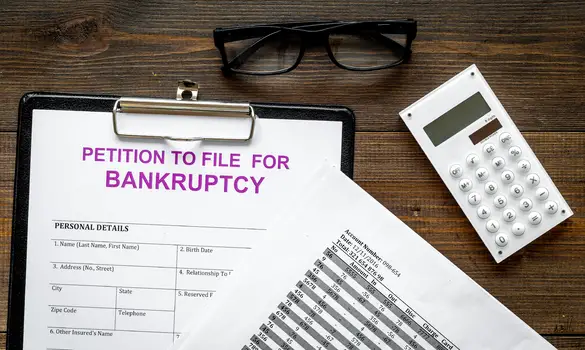Bankruptcy can be a scary and overwhelming process for many people. It often comes with a lot of stress and uncertainty, especially when it comes to the protection of one's assets. So, will all your assets be taken away if you file for bankruptcy? Here's what you need to know.
Protecting Assets in Bankruptcy
Many individuals fear that bankruptcy will result in the loss of all their assets. However, there are ways to protect your assets during the bankruptcy process. This includes understanding what assets are exempt from seizure, such as personal property and vehicles up to a certain value, retirement accounts, and some types of income.
Expect to disclose all your assets and creditors. Exemptions will differ in each state, and you'll want to be transparent and honest with your assets during the bankruptcy process.
When Should You File For Bankruptcy?

Bankruptcy may seem like an all-or-nothing decision, but it's essential to understand when it is appropriate to file for bankruptcy. The bankruptcy process should be considered as a solution to gain financial stability, not as an escape from debts.
If you're struggling to pay your bills or are being sued by creditors or debt collectors, filing for bankruptcy may be the right decision. However, it's essential to keep in mind that bankruptcy should be a last resort, and all other options should be explored first. A credit counseling session may be required, or a repayment plan may be developed with the help of your attorney before filing bankruptcy.
10 Tips to Avoid Bankruptcy

Preventing bankruptcy starts with careful financial management. Here are ten tips that can help you avoid filing for bankruptcy:
- Create a budget and stick to it.
- Stay on top of your bills and pay them on time.
- Avoid accruing excessive amounts of debt.
- Build an emergency fund to use in unexpected expenses.
- Be cautious when taking out loans or financing.
- Seek advice from a financial planner or credit counselor.
- Consider debt consolidation or settlement options with your creditors.
- Avoid using credit cards to pay for everyday expenses.
- Be honest with your financial situation and seek help if needed.
- Consider using cash instead of relying on credit cards.
Protecting Your Assets During Bankruptcy

Another concern during the bankruptcy process is how to protect your assets. Here are a few things to keep in mind:
- Disclose all your assets in your bankruptcy petition, including property, finances, and personal items.
- Understand your state's exemption laws and protect your assets accordingly.
- Consider hiring an experienced bankruptcy attorney to guide you through the process and protect your assets.
- Be transparent and honest during the bankruptcy process to avoid potential issues.
Remember, filing for bankruptcy may not be the ideal solution for you, but it can help in situations where debt is overwhelming. By understanding how to protect your assets during the bankruptcy process and seeking professional guidance, you can alleviate some of the stress and uncertainty that comes with the process.
In conclusion, bankruptcy can be a tricky and scary process, but it's essential to understand how it works and how to protect your assets. With the right preparation and guidance, you can navigate the bankruptcy process and come out on the other side with a fresh start.
